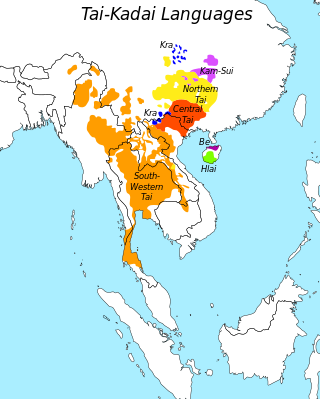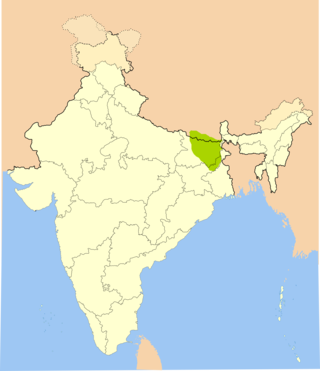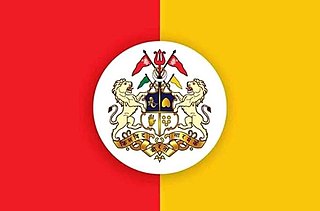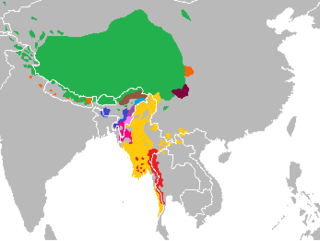
The Austroasiatic languages are a large language family spoken throughout Mainland Southeast Asia, South Asia and East Asia. These languages are natively spoken by the majority of the population in Vietnam and Cambodia, and by minority populations scattered throughout parts of Thailand, Laos, India, Myanmar, Malaysia, Bangladesh, Nepal, and southern China. Approximately 117 million people speak an Austroasiatic language, of which more than two-thirds are Vietnamese speakers. Of the Austroasiatic languages, only Vietnamese, Khmer, and Mon have lengthy, established presences in the historical record. Only two are presently considered to be the national languages of sovereign states: Vietnamese in Vietnam, and Khmer in Cambodia. The Mon language is a recognized indigenous language in Myanmar and Thailand, while the Wa language is a "recognized national language" in the de facto autonomous Wa State within Myanmar. Santali is one of the 22 scheduled languages of India. The remainder of the family's languages are spoken by minority groups and have no official status.

The Kra–Dai languages, are a language family in mainland Southeast Asia, southern China, and northeastern India. All languages in the family are tonal, including Thai and Lao, the national languages of Thailand and Laos, respectively. Around 93 million people speak Kra–Dai languages; 60% of those speak Thai. Ethnologue lists 95 languages in the family, with 62 of these being in the Tai branch.

Maithili is an Indo-Aryan language spoken in parts of India and Nepal. It is native to the Mithila region, which encompasses parts of the eastern Indian states of Bihar and Jharkhand as well as the Nepal's Koshi and Madhesh Provinces. It is one of the 22 scheduled languages of India. It is the second most commonly spoken language of Nepal. It is also one of the fourteen provincial official languages of Nepal.

Santali, also known as Santal or Santhali, is the most widely-spoken language of the Munda subfamily of the Austroasiatic languages, related to Ho and Mundari, spoken mainly in the Indian states of Assam, Bihar, Jharkhand, Mizoram, Odisha, Tripura and West Bengal by Santals. It is a recognised regional language of India as per the Eighth Schedule of the Indian Constitution. It is spoken by around 7.6 million people in India, Bangladesh, Bhutan and Nepal, making it the third most-spoken Austroasiatic language after Vietnamese and Khmer.

Magahi, also known as Magadhi, is a Indo-Aryan language spoken in Bihar, Jharkhand and West Bengal states of eastern India, and in the Terai of Nepal. Magadhi Prakrit was the ancestor of Magahi, from which the latter's name derives.

Kokborok (or Tripuri) is a Tibeto-Burman language of the Indian state of Tripura and neighbouring areas of Bangladesh. Its name comes from kók meaning "verbal" or "language" and borok meaning "people" or "human", It is one of the ancient languages of Northeast India.

Murray Barnson Emeneau was the founder of the Department of Linguistics at the University of California, Berkeley.
Khumulwng is a town in the West Tripura district in the Indian state of Tripura. It is the headquarters and the largest town of the Tripura Tribal Areas Autonomous District Council.

The Tripuri people (Kókborok: Tripuri dópha rok, are a Tibeto-Burman-speaking ethnic group of Bangladesh and Northeast Indian state of Tripura. They are the descendants of the inhabitants of the Twipra/Tripura Kingdom in North-East India and Bangladesh. The Tripuri people through the Manikya dynasty ruled the Kingdom of Tripura for over 600 years starting from 1400 A.D. until the kingdom joined the Indian Union on 15 October 1949. The Tipra Dynasty was established in 590 AD.

Kokborok (Tiprakok/Tripuri) is the native language of Tripuri people in present Tripura state in Northeast of India. During the 20th century many of Royal family and its officials contributes to develop the Kokborok language in many ways.
The issue of which script to use for the Kokborok language continues to provoke political controversy.

Debbarma is the main clan of Tripuri community, predominantly in state of Tripura, India and Bangladesh who speak Kokborok, a Tibeto-Burman language.

Suniti Kumar Chatterji was an Indian linguist, educationist and litterateur. He was a recipient of the second-highest Indian civilian honour of Padma Vibhushan.

The Tibeto-Burman languages are the non-Sinitic members of the Sino-Tibetan language family, over 400 of which are spoken throughout the Southeast Asian Massif ("Zomia") as well as parts of East Asia and South Asia. Around 60 million people speak Tibeto-Burman languages. The name derives from the most widely spoken of these languages, Burmese and the Tibetic languages, which also have extensive literary traditions, dating from the 12th and 7th centuries respectively. Most of the other languages are spoken by much smaller communities, and many of them have not been described in detail.

Ram Dayal Munda, known as R. D. Munda, was an Indian scholar and regional music exponent. He was awarded the Padma Shri of the year 2010 for his contribution to the field of art.
Kiorr is a Palaungic language of Luang Namtha Province, Laos.
Kokborok Day is a festival celebrated in the Indian state of Tripura to celebrate the development of the Kokborok language. It is observed on 19 January every year. The Kokborok language is an official language in Tripura. This day is chosen to commemorate its initial recognition as an official language in 1979. The activities include cultural programmes and literary activities.
Atul Debbarma is an Indian doctor-turned-politician and author. He was a practicing doctor in the Municipal Corporation of Delhi until December 2017. He became involved with Rashtriya Swayamsevak Sangh (RSS) and its different wings such as Vanvasi Kalyan Ashram and Vivekananda International Foundation in 2007. He won the Tripura Assembly Elections 2018 as the BJP candidate from Krishnapur constituency.
The Moklenic or Moken–Moklen languages consist of a pair of two closely related but distinct languages, namely Moken and Moklen. Larish (1999) establishes the two languages as forming two distinct subgroups of a larger Moken–Moklen branch. Larish (2005) suggests Moklenic as an alternative name for Moken–Moklen, the latter term which was originally used by Larish (1999).

Ilia Peiros is a Russian linguist who specializes in the historical linguistics of East Asia. Peiros is a well-known scholar in the Moscow School of Comparative Linguistics, known for its work on long-range comparative linguistics. Peiros is affiliated with the Santa Fe Institute in New Mexico, United States and was also a former faculty member at the University of Melbourne.













